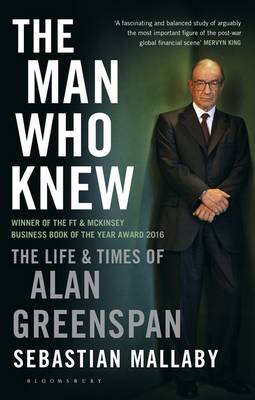Security depends not so much upon how much you have, as upon how much you can do without
— Joseph Wood Krutch, born in 1893
Mystery surrounds the way some CBA credit cards are compromised ...
Disruptive Change in the Taxi Business: The Case of Uber – Judd Cramer, Alan B. Krueger – NBER Working Paper No. 22083 – Issued in March 2016
Hard-drive-scrambling ransomware menaced more than 2,000 systems at San Francisco's public transit agency on Friday and demanded 100 bitcoins to unlock data, The Register has learned
“I’m mad as hell and I’m not going to take it anymore!”: Understanding anger in the Donald Trump era Salon. Remember that the expression of anger is taboo in the political class. Hence the necessity for stories such as this
The network of directors in Consett sheds new light on the legal grey zones in Britain's corporate regulation, showing how they help scammers turn UK businesses into tools of deception. Some of the activity the companies lent their names to was illegal, but neither the directors nor the company formation agent involved have been charged with any wrongdoing. Frances Coulson, head of insolvency and litigation at Moon Beever solicitors and a trustee director of an independent think tank, the Fraud Advisory Panel, said the story highlights flaws in the regulation and enforcement of company formation in Britain. "Part of the raison d'etre for the enforcement is the protection of the public," she said. This "doesn't sound as if it's happening."
Shell Companies: The quiet town in Britain that became a porn hub
… The notion of let the history repeat with iron law of oligarchy
In some ways the new world we have entered is not as novel as it looks. In reducing its global role, the US is returning to the more historically normal position it held in the 19th century as one of several great powers.
Why Big Data Isn’t Enough
MIT Sloan Management Review, 14/11/16. There is a growing belief that
sophisticated algorithms can explore huge databases and find relationships
independent of any preconceived hypotheses. But in businesses that involve
scientific research and technological innovation, the authors argue, this
approach is misguided and potentially risky
TAXPROF ROUNDUP: The IRS Scandal, Day 1295. I love how after 8 years of Lois Lerner, Eric Holder, and Loretta Lynch, the folks at Politico are suddenly worried about the politicization of the civil service
DOGS HAVE EPISODIC-LIKE MEMORY SIMILAR TO OURS: Your dog is watching you very carefully and remembers what you do. But you know that. At least, unlike cats, dogs don’t keep lists
THREE years ago, Credit Suisse sued him over a $US750 million lending deal that the bank described as a ”brazen conspiracy … to cheat and deceive on an unmatched scale”. The case settled.
Just two weeks later, JP Morgan accused him of smuggling a Rembrandt and some other valuable paintings out of the US, artwork that the bank alleged had been put up as collateral for a $US50 million loan. That case settled too, but not before sheriffs raided his apartment on the 64th floor of Trump Tower on New York’s Central Park and confiscated 29 works of art, including three Picassos, a Monet and three Modiglianis.
There is one case, however, that hasn’t settled. It is a 15-year marathon that has racked up $300 million in legal fees. It is the biggest court case in Australia – the lawsuit between the liquidator and the banks in Bell Resources. And this time he is not a defendant.
There's an incredible theory on why George Brandis and Justin Gleeson fell out, involving Alan Bond and the ATO
Meet the man who Brandis and WA are jilting in Bell saga
Crown assembles legal war room in act of 'a--- covering'
“As God as my witness, I thought turkeys could fly”
“The distribution of wealth across the globe is anything but even. North America is home to just 4.9% of the world’s population — and 26.5% of its wealth. Meanwhile, South Asia is home to 23.7% of the global population but owns just 3.6% of global wealth. While gross domestic product provides an accurate picture of the size of a nation’s economy, gross national income, or GNI, is a more precise measure of citizens’ financial well-being, especially when considering GNI per capita. GNI includes GDP as well as the net income of the country’s residents obtained outside the country’s borders. In the United States, the annual GNI per capita of $53,245 is at least 21 times the GNI per capita in each of the world’s 25 poorest countries. In the Democratic Republic of the Congo, the poorest country in the world, GNI per capita is only $680 a year…”
It seems quite a few of the poor, when they get some extra money, want to keep on buying refined sugar. Or in other words, it takes quite a bit of income (or is it education?) to “elevate taste.” Here is the job market paper by Olga Kozlova of Duke University:
This paper explores how the low-income households change the quality of their food basket when they experience a budget increase. I use the variation in the monthly household budget coming from the exogenous variation in the winter temperature that directly affects the heating bills. I show that in response to a higher budget available the expenditure share on healthy food does not increase. I find that households increase the share of expenditure on fruits, but they purchase fruit products with a higher amount of sugar. My findings suggest that there are important trade-offs in policies that subsidize food expenditure because these policies allow low-income households to purchase more of the healthy as well as the unhealthy food products
Robert D. Flach reports on THE 2016 NATP YEAR-END TAX UPDATE WORKSHOPS. “When I do have to sit through the ethics preaching, usually daydreaming or reading the paper, some of what I do hear is, to me, complete nonsense.”
 “November 23, 2016 – Eight years on, the legacy of the financial crisis continues to reverberate, in economics and politics. How did it happen? What lessons can we learn? The winner of this year’s Financial Times and McKinsey Business Book of the Year award, Sebastian Mallaby‘s The Man Who Knew, adds to the debate by recounting the pivotal role played by former Federal Reserve chairman Alan Greenspan. The award was presented on Tuesday night at a ceremony at the National Gallery in London by Financial Timeseditor Lionel Barber and Vivian Hunt, managing partner of our United Kingdom and Ireland office. Vivian describes The Man Who Knew as “marrying the biographer’s humanizing touch with a fascinating inside look at how policy decisions are actually reached in the real world….”
“November 23, 2016 – Eight years on, the legacy of the financial crisis continues to reverberate, in economics and politics. How did it happen? What lessons can we learn? The winner of this year’s Financial Times and McKinsey Business Book of the Year award, Sebastian Mallaby‘s The Man Who Knew, adds to the debate by recounting the pivotal role played by former Federal Reserve chairman Alan Greenspan. The award was presented on Tuesday night at a ceremony at the National Gallery in London by Financial Timeseditor Lionel Barber and Vivian Hunt, managing partner of our United Kingdom and Ireland office. Vivian describes The Man Who Knew as “marrying the biographer’s humanizing touch with a fascinating inside look at how policy decisions are actually reached in the real world….”
Hawaii swap flop. The like-kind exchange rules under Section 1031 can make it easy to roll the gain from one property into new property while deferring gain. It’s not automatic, though, as a Hawaiian real estate company learned yesterday in Tax Court.
The Tax Court sided with the IRS. The result isn’t really a surprise, as it has decided similar cases, including another case involving Hawaii taxpayers with similar facts. The taxpayer pointed out some differences in the facts, but the judge said the differences didn’t matter:
In sum, by employing a deferred section 1031 exchange transaction to dispose of the Maryland property, petitioner and MIL, viewed in the aggregate, “have, in effect, ‘cashed out’ of the investment”…
The Moral? Like kind exchanges with related parties can work. Having an intermediary buy property from a related party to qualify a sale to a third-party as a like-kind exchange doesn’t work.
Cite: THE MALULANI GROUP, LIMITED AND SUBSIDIARY, T.C. Memo 2016-209
Jack Townsend, DOJ Tax Principal DAAG Recent Review of Activities Related to Federal Tax Crimes. Excerpts from a press release regarding a tax prosecutor’s speech to an ABA tax conference


